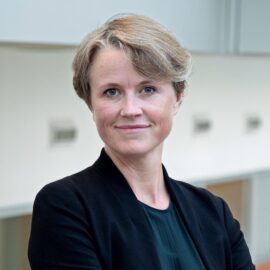
Increasing Lung Cancer Screening Through Connected Health
- Behavior Change
This project is the feasibility of direct patient outreach & telemedicine referral to increase lung cancer screening counseling & uptake. The long-term goal is to decrease lung cancer burden by increasing utilization of LCS & providing clinicians & patients with effective strategies to deliver high-quality, patient-centered care.
Implementation of annual lung cancer screenings (LCS) across the United States remains low (estimated 5% screening-eligible population screened). There are several challenges contributing to low implementation rates, such as barriers to identifying screening-eligible patients and uncertainties regarding risks and benefits.
This pilot study, increasing lung cancer screening through connected health, is testing the effectiveness and feasibility of using direct patient outreach and telemedicine referral to increase LCS counseling and uptake among screening-eligible patients who wish to be screened. Leveraging rich data collected as part of the Lung PROSPR Research Center, the research team will identify screening-eligible patients via their medical record and randomize enrolled participants into two study arms: 1) usual care or 2) telemedicine LCS counseling referral.
The second aim of the study is to explore effects of individual and cognitive moderators (patient characteristics, risk factors, health literacy, and psychological beliefs) on LCS screening intention and uptake. All participants will receive information on LCS and tobacco cessation resources available at Penn Medicine and nationally.
Results from this study will be used to develop tailored outreach and identify effective strategies for expanding the pilot study. The long-term goal is to decrease lung cancer burden by increasing utilization of LCS and providing clinicians and patients with effective strategies to deliver high-quality, patient-centered care. This study will also advance scientific understanding of the mechanisms that drive or hinder health behavior in the context of cancer prevention.
Abramson Cancer Center Support Grant; Population Sciences Center of Excellence
Project Leads
Project Team
-
Christoph Hutchinson
-
Sophia Wasserwald


